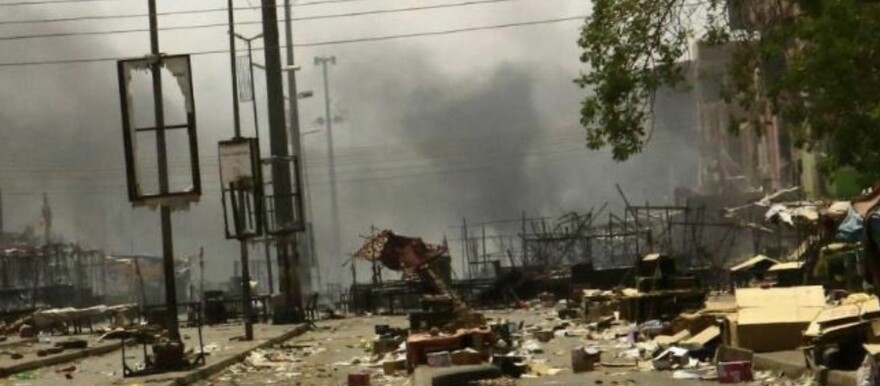Sudan is facing a humanitarian and human rights disaster as warring sides intensify fighting in the country, and there is a need for a sustained international commitment to resolving the crisis, a senior United Nations official told the Security Council on Thursday.
Martha Ama Akyaa Pobee, Assistant Secretary-General for Africa, Departments of Political and Peacebuilding Affairs and Peace Operations, said that “Sudan is facing a convergence of a worsening humanitarian calamity and a catastrophic human rights crisis,” with more than 2,000 civilians killed since fighting erupted in April between the Sudanese Armed Forces and the Rapid Support Forces (RSF).
“It is high time that the warring sides recognize the futility of continued fighting and prioritize dialogue and de-escalation,” she said. “It is also important that the situation in Sudan does not fall off the international radar, but rather, that the international community renews its commitment to revitalize collective and coordinated peace efforts under the leadership of the region.”
Sudan now is the world’s largest displacement crisis, with 7.1 million people forced from their homes. The health situation is extremely worrying, while 4.1 million people have received life-saving assistance since April. Sexual and gender-based violence continue, with the Rapid Support Forces accused of sexual violence and the Sudanese Armed Forces personnel implicated in rape and sexual harassment.
People fleeing to Chad from West Darfur have reported a new surge of ethnically driven violence directed towards the Masalit community, she continued. Credible reports say Arab militias affiliated with the Rapid Support Forces committed serious human rights abuses between 4 and 6 November, particularly in El Geneina. The United Nations Integrated Transition Assistance Mission in the Sudan (UNITAMS) is working to verify both this and reports that a Masalit militia targeted violence against the Arab community in El Geneina, “risking cyclical bouts of violence.”
Ama welcomed the resumption of talks between the warring parties in Jeddah, Saudi Arabia, in October, but said that despite their declared readiness to negotiate a ceasefire, actions on the ground suggest otherwise.
Turning to the role of UNITAMS amid dramatically changed circumstances, she requested that the Security Council provide the Secretary-General’s strategic review of the Mission with sufficient time to ensure that it is as thorough as possible and reflects a wide range of views.
Sudan’s representative, Al-Harith Idriss al-Harith, taking the floor at the end of the meeting, said that since 18 April, his country’s Government has been cooperating with all regional and international forces to bring an end to the war and the suffering of the Sudanese people.
“The Prosecutor of the International Criminal Court must take note of the crimes of the Rapid Support Forces,” he said, “The militias are continuing with the forced expulsion of citizens, ethnic cleansing, and other international crimes, despite the commitments they made during the Jeddah talks.”
On humanitarian assistance, Idriss said that the government is cooperating with the United Nations, especially to assist vulnerable groups such as women. He went on to say that a strategic review of UNITAMS is essential, as the Mission’s functioning is not commensurate with expectations.




